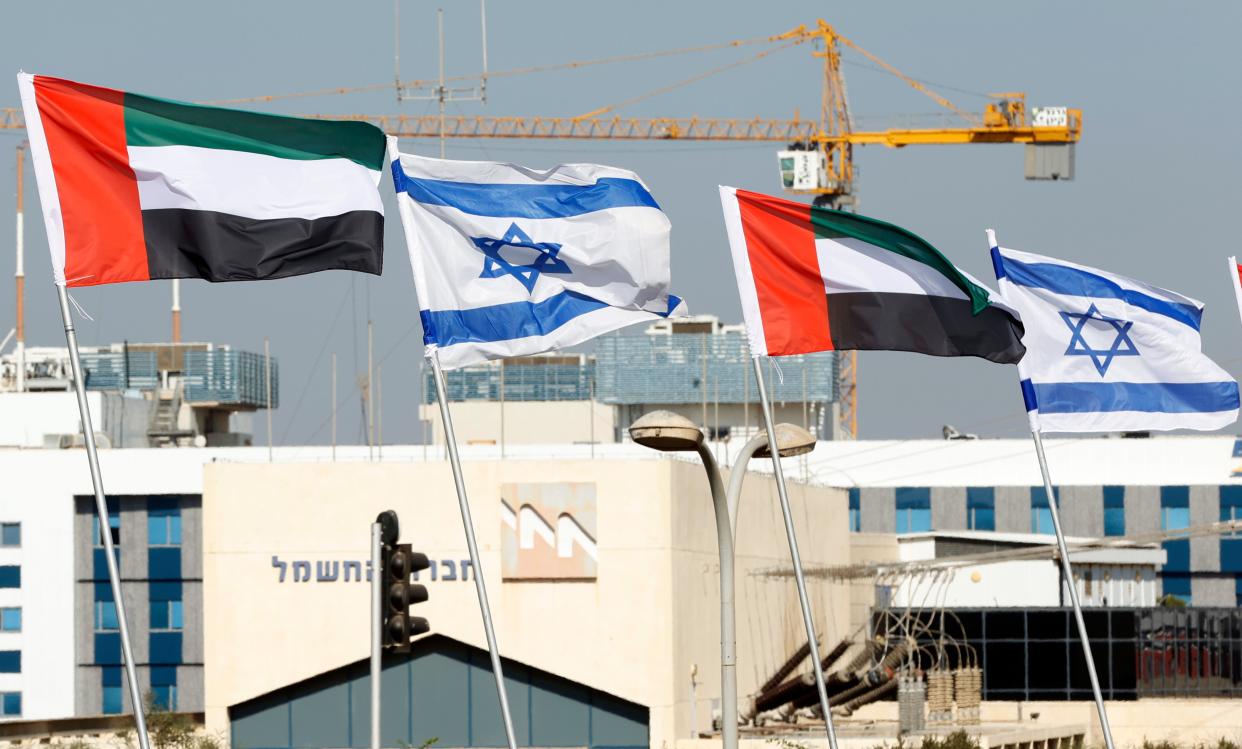UAE formally ends Israel economic boycott after US brokered deal

The United Arab Emirates (UAE) have officially scrapped the economic boycott on Israel, after president Khalifa Bin Zayed Al Nahyan, who is also the ruler of Abu Dhabi issued a decree.
Sheikh Nahyan’s move allows for trade and financial agreements between Israel and the UAE — a federation of seven sheikhdoms on the Arabian Peninsula — in another step towards normal ties.
On 13 August, the nations agreed the Abraham Accord to open up relations after the US brokered a deal, in exchange Israel will halt its controversial plans to annex occupied West Bank land sought by the Palestinians.
It comes as Israel’s El-Al Airlines (ELAL.TA) prepares to operate its first flight from Tel Aviv’s Ben Gurion Airport to UAE’s capital, Abu Dhabi on 31 August. Although it is unclear whether it will be able to fly over Saudi Arabia, which has no official ties with Israel — to cut down on flight time.
The flight will carry an Israeli government delegation and top aides to US president Donald Trump, including White House top adviser and Trump’s son-in-law Jared Kushner.
READ MORE: The legacy of ‘Abenomics’ explained as Japan’s Shinzo Abe steps down
Before the two countries officially sign a deal, they must first agree on issues such as trade, travel links and the opening up of embassies.
UAE's state-run WAM news agency said the decree opens doors for Israelis and Israeli companies to do business in the UAE, as well as allowing for the purchase and trade of Israeli goods.
“Following the abolition of the Israel boycott law, individuals and companies in the UAE may enter into agreements with bodies or individuals residing in Israel or belonging to it by their nationality, in terms of commercial, financial operations, or any other dealings of any nature,” WAM quoted the decree as saying.
Adding, that it lays out a roadmap toward launching joint cooperation, leading to “bilateral relations” by “stimulating economic growth” and “promoting technological innovation."
READ MORE: Hong Kong, UAE and Indian buyers push prime London property market to busiest in over five years
Arab countries heavily criticised the UAE after the Abraham Accord was announced, with Bahrain’s King Hamad bin Isa Al Khalifa telling US secretary of state Mike Pompeo his country remains committed to the Arab Peace Initiative. Sudan’s prime minister Abdalla Hamdok also rejected establishing relations with Israel.
The Arab Peace Initiative calls for Israel's complete withdrawal from Palestinian territories occupied after 1967, in return for peace and normalisation of relations.
Saturday’s announcement formally abolishes a 1972 law in UAE’s books, which banned business between the nations.
In May, Etihad Airways made history after becoming the first UAE carrier to fly to Israel. It flew from UAE to Tel Aviv’s Ben Gurion Airport, to provide supplies for Palestinians amid the coronavirus pandemic.
The deal makes the UAE the third Arab country to agree established ties with Israel, after Egypt reached a deal with the country in 1979 and Jordan in 1994.
